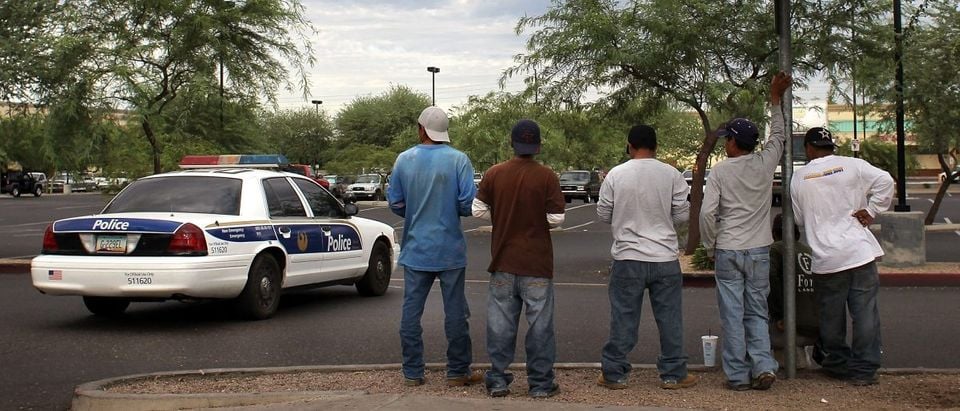A Department of Justice community policing grant program calls for local law enforcement to enforce federal immigration law.
Attorney General Jeff Sessions wrote in a memo last week that the DOJ will work to tailor grants in order to “promote a lawful system of immigration.”
The Community Policing Development (CPD) program gives recipients funds to work with local law enforcement agencies. The fiscal year 2017 grant will give up to $11 million to government agencies and non-government agencies to “significantly advance the field of community policing.” Up to $900,000 of these funds will go towards “cooperative partnerships with federal law enforcement to combat illegal immigration.”
“The recipient will be required to work with multiple local law enforcement agencies to implement, advance, and document successful partnerships with Federal law enforcement to combat illegal immigration,” the grant application guide states. “The applicant will work with as many state, county, or local law enforcement agencies as possible that are successfully coordinating with Immigration and Customs Enforcement (ICE) through task forces, section 287(g) partnerships, information sharing, and responding to detainer requests.”
ICE identified 118 jurisdictions in March that limit compliance with detainers, but doing so is not against the law. The White House’s proposed 2018 budget will change this, and in the meantime the DOJ is trying to encourage jurisdictions to comply with these requests to hold a detainee for up to 48 hours or let ICE know when they will be released.
The Trump administration has also called for the expansion of the 287(g) program that allows state and local law enforcement agencies to enforce immigration law. Just six agencies have signed up with the program since the president signed an executive order regarding this policy. An ICE official, however, told TheDC that it takes a while for these agreements to get put into place.
An additional five “microgrant projects” of up to $75,000 will go to state, local, or tribal law enforcement agencies. They are eligible for these for doing several initiatives, one of which is: “Coordination with federal law enforcement to combat illegal immigration.”
The grant application guide states that within these “microgrant projects” priority consideration will be “given to state or local applicants that cooperate with federal law enforcement to address illegal immigration.”
The goal of these programs is to help law enforcement agencies around the nation, according to the DOJ.


